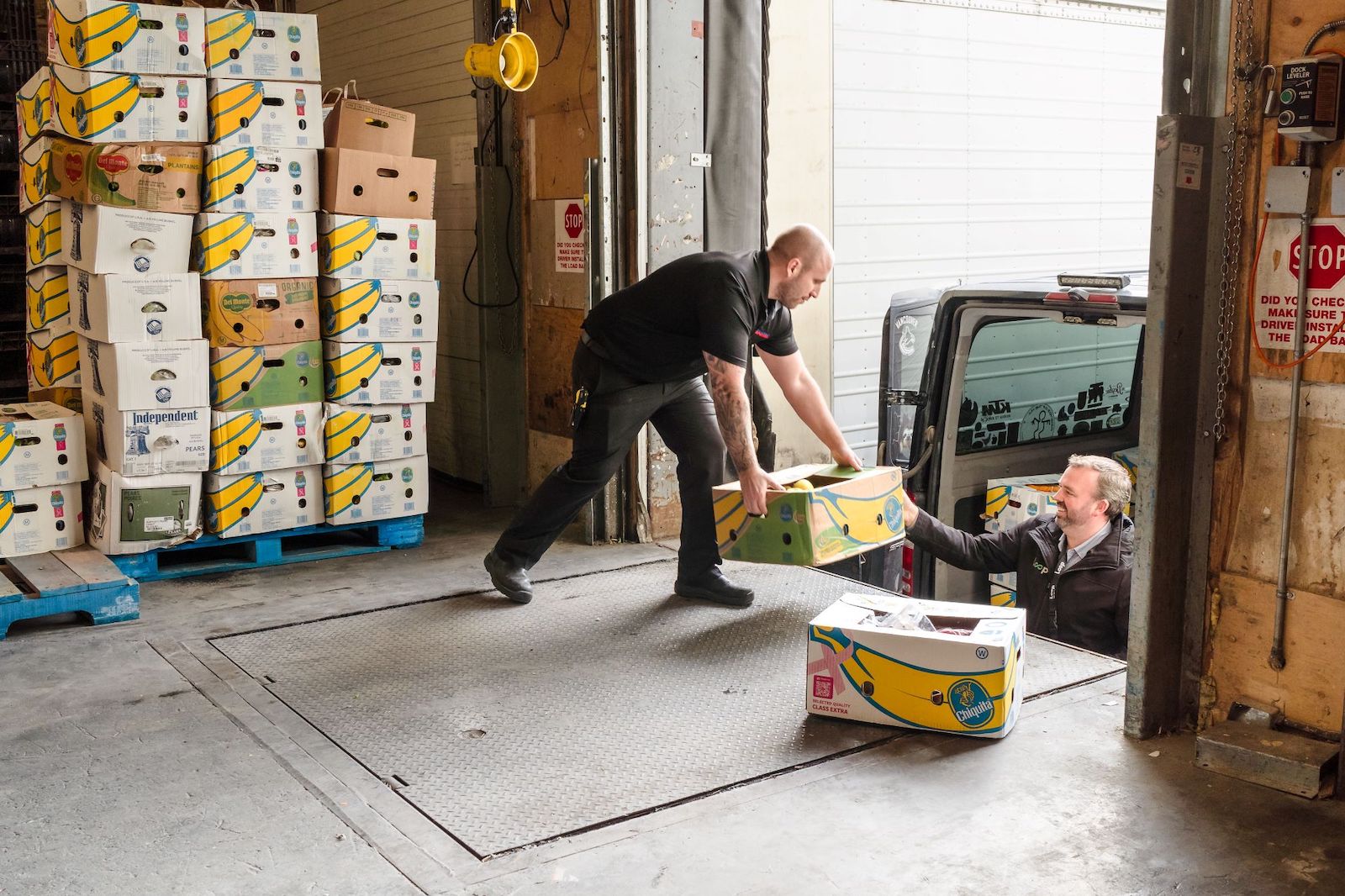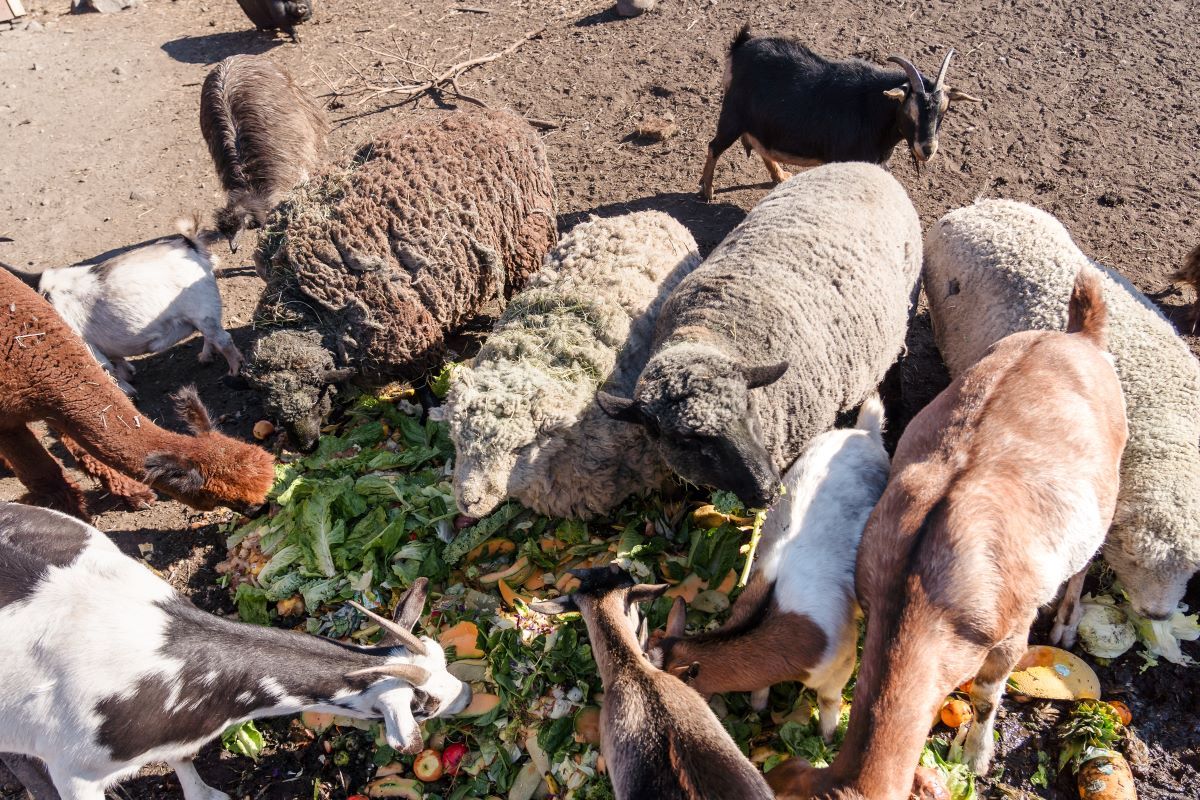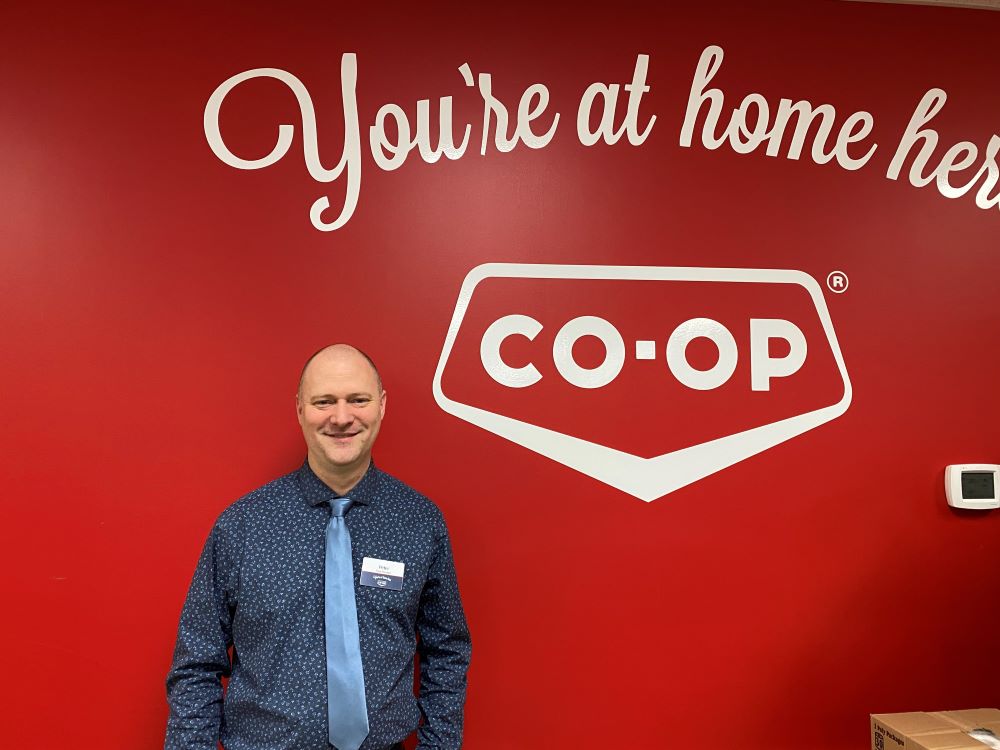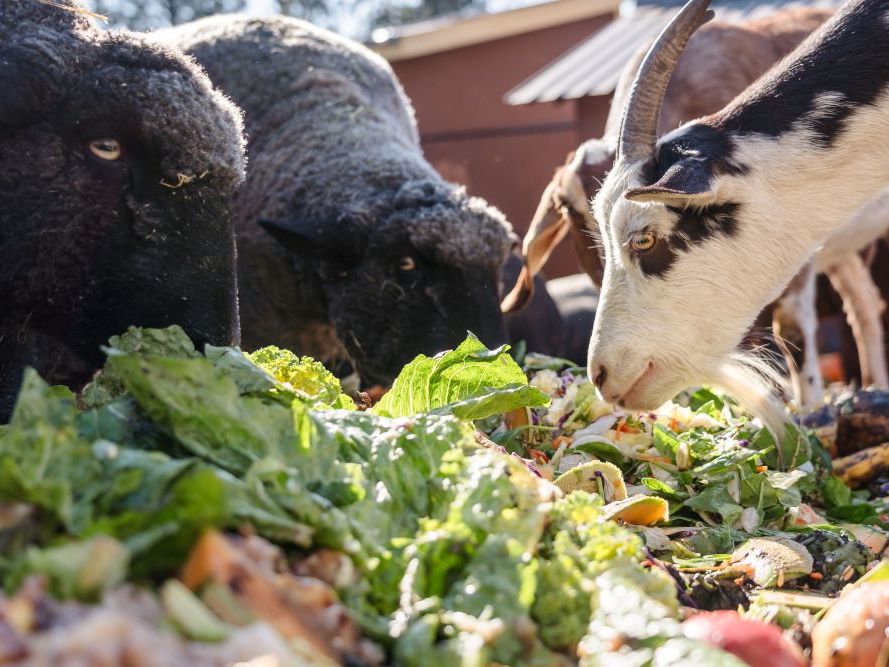[Editor’s note: This article runs in a new section of The Tyee called ‘What Works: The Business of a Healthy Bioregion,’ where you’ll find profiles of people creating the low-carbon, sustainable economy we need from Alaska to California. Find out more about this project and its funders.]
Kristy Sivorot’s cows will do anything for a raw potato.
When a startup began helping her bring loads of surplus food from her local grocer home to her farm in Sooke, B.C., Sivorot said, she imagined her small herd of dairy and beef cows would want an apple or something sweet.
Instead, she said, the raw potatoes she brings home from these pickups have become her cows’ favourite snack.
“They'll fight over the potatoes. They'll push each other around like ‘My potatoes; no, my potatoes,’” she said.
The pickups that Sivorot does every week at the Langford Save-On-Foods, about a 20-minute drive away, are organized by the food diversion company Loop Resource.
Founded in Dawson Creek, B.C., Loop Resource consists of a network of almost 500 grocery stores and about 4,000 small farms across Canada. Every week, these stores and farms work together to divert surplus food away from landfills where it would otherwise become waste contributing to planet-warming methane emissions. Instead, it feeds livestock whose meals may have otherwise been impacted by climate change. At about six years old, Loop has 41 staff and operates in every province and territory in Canada except Quebec, the Northwest Territories and Prince Edward Island.
Jaime White, founder of Loop Resource, said he started the company because he believes in knowing where his food comes from, minimizing waste and spending more time on his farm, with his family.
In an effort to increase the production of his own farm, White said, he decided to add pigs to the roster of sheep, goats and chickens he was already raising. Although the pigs were guaranteed to produce a lot of meat for the farm, White said he quickly came to terms with how much pigs eat.
“All of a sudden we were working extra jobs to feed the pigs,” he said.
“So... I went to the local grocery store and I was like, ‘Hey, I'd like to have the food you're throwing away and I'll feed my pigs with it.’”
Shockingly, the answer was no, White said. Unreliability, liability, brand damage, pests, and health and safety problems were among the issues White said an employee of his local store, Dawson Co-op, listed off to him when he asked, “Why not?”

Returning home empty-handed, White realized if he bought insurance for all of the problems mentioned by the grocery store and agreed to pay penalties if he didn’t keep his word, he could have a viable partnership, he said.
“I sat down with a pencil and made a few phone calls to some people I knew in insurance and contracting,” he said. “And I went back to [the co-op] and said, ‘Look, here's what I'd like to do.’”
After that, White said, he began making regular rounds to pick up excess food from the Dawson Co-op and looped in a couple of his neighbouring farms too. Since then, Loop has only continued to grow.
Now, White’s clients include a tortoise rescue, emu farm, camel sanctuary and wolf-dog rescue.
“We're keeping food out of the garbage. We're supporting local agriculture and sustainable food. And we're doing it in a way that everybody wins. And that's pretty fun,” he said.
When surplus food ends up in the landfill, it produces methane — a potent greenhouse gas that scientists estimate is responsible for 30 per cent of observed global warming. In Canada, municipal landfills account for 23 per cent of methane emissions, according to the federal government.
Meanwhile, Canadian farmers' winter feed stocks are in dire straits due to relentless drought conditions from the past few years. According to Agriculture and Agri-Food Canada, 81 per cent of the country’s agricultural lands were considered abnormally dry or in drought conditions at the end of November.
Since it began in 2017, Loop has diverted more than 266 million pounds of food away from landfills and towards livestock in need. White said he works with all sorts of farmers, from parents looking to spend more time at home with their kids, to retirees, to young farmers trying to save money on feed while starting out.
“I don't think people realize how many small farmers there are in their community and how many people are trying to change our food security picture by investing in local production,” he said.
“Whether it's local production for sale or just local production for them and their family, both of those things should be celebrated.”
Sivorot was an early adopter of Loop, joining in 2018. Now, she not only is a Loop farmer but also holds a couple of roles in the company itself, as a scheduler and lead for new farms.
Since becoming a Loop farm, Sivorot said, she’s been saving money on her feed bill and noticing a tangible difference in the health of her livestock. Where she lives, there’s a selenium deficiency.
“You can't find it anywhere on the Island. It doesn't happen in our food that we grow, or the hay we feed our animals,” she said. “So I would have to supplement that or give my cows selenium shots when they were little.”
Now, Sivorot’s cows no longer require those shots owing to their steady consumption of surplus produce that’s been grown in other places, where selenium is more readily available in the soil.
Cheaper feed costs for Sivorot also mean cheaper costs for her customers, she added.
“Because I don't have to pay as much to feed my animals, I allow for a sliding scale for people so that you don't have to pay as much as well,” she said.
“It's kind of nice that I can pass that along to my consumers that buy farm stuff from me.”

Since Loop works with small farms producing food within their community or for themselves, White said, the company doesn’t introduce any risk into the commercial agriculture sector.
Plus, White said he makes a big effort to ensure the farmers he works with don’t have to worry about the quality of the food their animals are eating. Loop co-ordinates with the Canadian Food Inspection Agency to ensure that any “risky” food items are segregated at the source, meaning they never come into contact with the feed farmers receive.
Additionally, White said every time Loop partners with a new store, it works to make sure any human-safe food is given to charities first, before farmers come to collect their loads.
If a farm ever gets too big for Loop’s program, he added, they simply remove themselves and another farmer takes their spot. Because for every farmer who’s taking part in Loop, White said, there’s often a handful of others who are on a wait-list for that same area.
“We work with many grocery stores, but a small fraction of the stores in Canada,” White said.

When a new store partners with Loop, White said, he asks them how many times they can have a pickup available every week. They multiply that number by two or three, and that’s the capacity of farms that can work with that particular store.
It takes the digestive systems of animals about two weeks to adjust to a new diet, White said. Therefore, farmers need to pick up loads no less than two weeks apart so their animals’ systems don’t readjust in between.
“If you don't eat beans, and then you do, you have a mismatch of gut bacteria for a while and it's uncomfortable,” he said. “In animals, it can be deadly.”
While maintaining the efficacy of the program, White said, the only solution to wait-lists is to enrol more stores in the program.
“We're cheaper than garbage,” he said.
“Would you like to save money, support local farms and reduce your impact on the environment? If you can say yes to that, we'd love to show you how it works.”
In Dawson Creek, White’s local co-op continues to take part in the Loop Resource program to this day. Peter Lavandier, food store manager at Dawson Co-op, said the store saves an average of $25,000 per year in landfill fees by diverting food through Loop.
He said the store has three farmers who come every week for a pickup.
Similarly, Sweláps Market in Kamloops also has three pickups per week. The on-reserve grocery store opened in October and immediately began its partnership with Loop. General manager Kara Stokes said she worked with the program in a previous job and knew she wanted to carry this on in her new position.
“I like the flexibility of the program. They're very easy to work with when it comes to product waste that would otherwise go in the landfill,” Stokes said.
Currently, Stokes said, the store typically has between eight and 12 banana boxes of food to give away per pickup, and they have three pickups per week.
Constantly on the search for more store partners, White said the grocers Loop currently works with are leading the charge and, in some cases, subsidizing other grocers to participate.
“We work with these guys every day; they bleed for their communities,” he said.
“They are cool people, who are really leading the charge in sustainable local agriculture.... This co-operation is what being Canadian is about. I think it's what being human is about.” ![]()
Read more: Local Economy, Food
















Tyee Commenting Guidelines
Comments that violate guidelines risk being deleted, and violations may result in a temporary or permanent user ban. Maintain the spirit of good conversation to stay in the discussion and be patient with moderators. Comments are reviewed regularly but not in real time.
Do:
Do not: